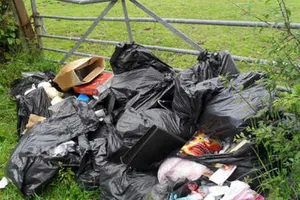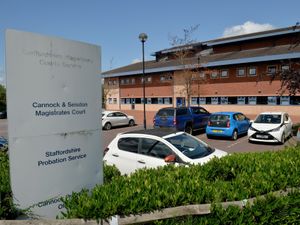Councils winning war on fly-tipping menace
A dramatic drop in reports of fly-tipping has been recorded in Staffordshire as councils wage war on rogue rubbish dumping.

A dramatic drop in reports of fly-tipping has been recorded in Staffordshire as councils wage war on rogue rubbish dumping.
Hundreds fewer illegal drops are being reported by residents each year, saving taxpayers tens of thousands of pounds in clean-up costs.
South Staffordshire, Lichfield District and Stafford Borough councils have all seen a drop of almost half in the number of fly-tipping incidents they attended in 2010/11 compared to 2007/08.
Call-outs at Cannock Chase bucked the trend, rising around 11 per cent in the same period.
Covert CCTV cameras have been installed at hotspots and vans are being stopped and searched by enforcement officers as part of a county-wide crackdown.
The largest fall in fly-tipping was in Stafford borough with 368 reports in the last full financial year, down from 710 in 2007/08. The council spent £20,445 clearing up mess dumped illegally last year, down from £32,755 four years ago.
In South Staffordshire £35,000 was spent dealing with 439 piles of rubbish, down from £47,000 paid out clearing up 706 in 2007/08.
Last year there were 278 fly-tipping reports across Lichfield compared to 510 in 2007/08. Council costs dropped to £18,287 from £25,864.
However, 583 illegal rubbish drops were reported in Cannock, up from 524 four years ago.
It comes after South Staffordshire Council received national coverage for its work reducing fly-tipping after appearing in the BBC1 documentary Filthy Rotten Scoundrels.
A report due to go before the council this month said a crackdown including stop-and-searches of waste carriers throughout the district had helped reduce incidents of fly-tipping.
Bosses at Cannock Chase District Council said more than 200 stop and searches were carried out in 2010/11, up from zero in 2007/08.





